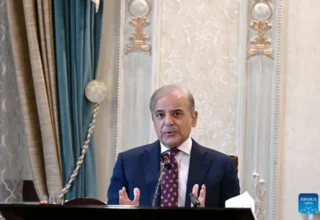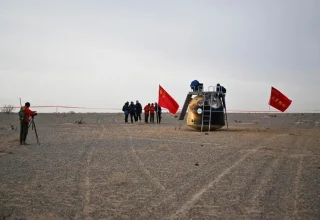
Pakistan has begun work on its first-ever robotic lunar rover, marking a major milestone in the nation’s space exploration ambitions. The project is being led by the Pakistan Space and Upper Atmosphere Research Commission (SUPARCO), with the goal of sending the rover to the Moon before 2028.
Dr. Adnan Aslam, General Manager at SUPARCO, confirmed that Pakistan is actively developing its own lunar rover as part of an upcoming space mission. He said that work is underway to complete the mission ahead of the 2028 target.
According to media reports, the mission will coincide with China’s Chang’e-8 lunar program, and Pakistan’s rover will be carried to the Moon alongside the Chinese mission. The rover, weighing approximately 35 kilograms, will land near the Moon’s south pole, a region of growing scientific interest for its potential water ice deposits.
Dr. Aslam also revealed that Pakistan is exploring plans to eventually send a Pakistani astronaut to the Moon, further expanding the country’s participation in international space cooperation.
SUPARCO had earlier announced in February 2025 that Pakistan’s first lunar rover would be launched in collaboration with China, and a nationwide competition was held to name the rover.
The Chang’e-8 mission will be launched from China’s Wenchang Space Launch Center, and if successful, Pakistan will become the sixth nation in the world to land a rover on the lunar surface. During the mission, the Pakistani rover will conduct surface analysis and multiple scientific experiments at the Moon’s south pole.
In a related milestone, on October 19, 2025, Pakistan successfully launched its first Hyperspectral Satellite (HS-1) into orbit with Chinese cooperation. The satellite is a key component of the National Space Policy and Vision 2047, aimed at improving infrastructure mapping, urban planning, agricultural management, and environmental monitoring.
According to a SUPARCO spokesperson, the HS-1 satellite will also assist in predicting floods, landslides, and other natural disasters, while enabling real-time monitoring of climate change and geological risks.
The HS-1 marks Pakistan’s third satellite launch to date, following the successful deployment of EO-1 and KS-1 satellites, both of which remain fully operational in orbit.
Officials described the twin achievements as the Hyperspectral Satellite and the upcoming lunar rover as cornerstones in Pakistan’s journey toward advanced space technology and exploration.





































